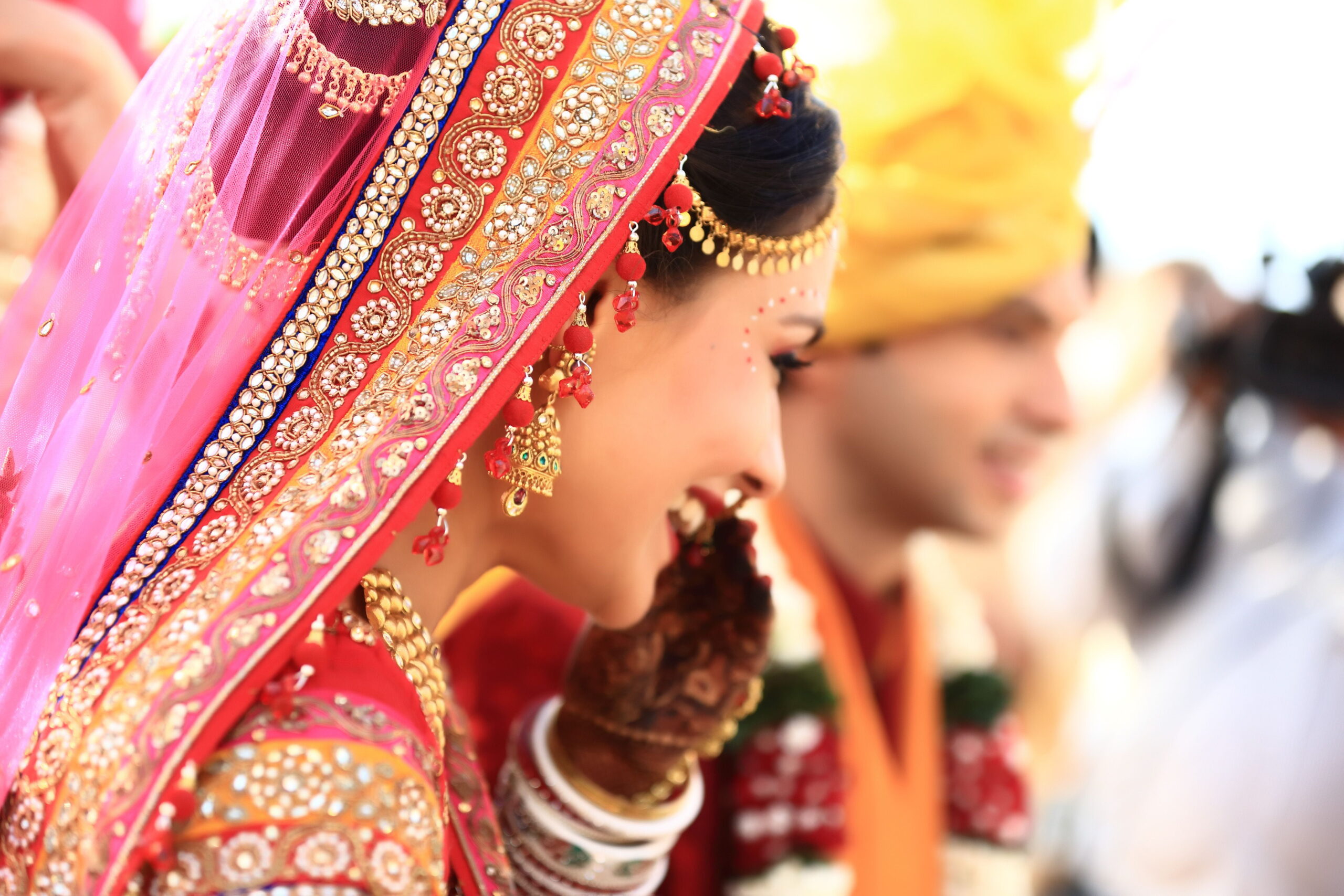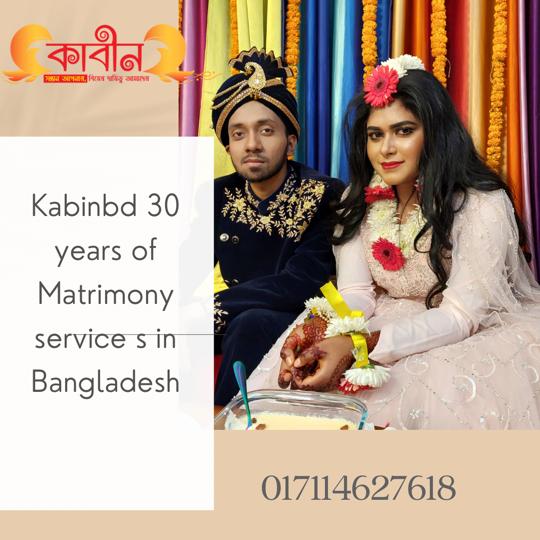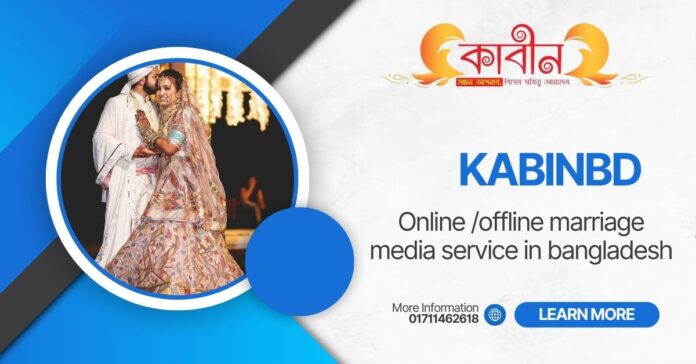What is the law of marriage in Bangladesh
Navigating the Aisle: A Comprehensive Guide to Marriage Law in Bangladesh
Congratulations on your decision to get married in Bangladesh! This exciting chapter requires navigating legal procedures alongside cultural traditions. This guide delves into the essential aspects of marriage law in Bangladesh, equipping you with the knowledge for a smooth and successful journey towards wedded bliss.
Key Legislation:
Bangladesh primarily follows the Special Marriage Act, 1872, for civil marriages. Here’s a breakdown of the core legal requirements:
- Eligibility:
- Neither party can have a living spouse at the time of marriage.
- Minimum age: 18 for men and 14 for women (as per Gregorian calendar). However, there’s no minimum age restriction for widows to remarry.
- If below 21 (except widows), written consent from a parent or legal guardian is mandatory.
- Parties cannot be closely related by blood or marriage in a way that would make marriage illegal under their respective religious or cultural laws.
- Notice of Marriage:
- One partner must submit a written notice to the Registrar of Marriages in the district where at least one partner has resided for 14 days before the notice.
- The notice includes details like names, addresses, fathers’ names (optional), occupations, and ages of both partners, along with a declaration of no legal impediments to the marriage.
- Documentation:
Marriage in Bangladesh, a vibrant blend of cultural traditions and legal requirements, necessitates a well-prepared couple. This guide serves as a checklist for the crucial documents you’ll need to navigate the marriage process smoothly, whether opting for a civil marriage under the Special Marriage Act or a Muslim marriage following Islamic law and the relevant Bangladeshi statute.
General Documents (Applicable to Both Civil and Muslim Marriages):
- Proof of Identity for Both Partners:
- National Identity Card (NID card) is the preferred document.
- Passport can be used if a valid NID card is unavailable.
- Proof of Residence (for at least one partner in the district):
- Utility bill (electricity, water) with a clear address.
- Rent agreement with a valid lease period.
- Residence certificate issued by a local government authority (may be required in some cases).
- Three Passport-Sized Photographs (each partner): Ensure recent and clear photographs with a neutral background.
Additional Documents (Depending on Marriage Type):
Civil Marriage (Special Marriage Act):
- Notice of Marriage Form: Completed and signed by one partner, available from the Registrar’s office or downloadable from the local government website (availability may vary).
- Written Consent from Parent/Guardian (if applicable): Required if either partner is below 21 years old (except widows) and does not have parental consent.
- Widow/Widower Certificate (if applicable): Proof of a deceased spouse for widows/widowers seeking to remarry.
Muslim Marriage:
- Marriage Contract (Nikahnama) (Optional): Though not mandatory for a valid marriage, it’s a customary document outlining details like Mahr (dower), Wali (guardian), witnesses, and other agreed-upon terms. It’s recommended to have a Nikahnama prepared and signed by both parties and witnesses.
Foreign Nationals Marrying Bangladeshi Citizens:

- Valid Passport with Bangladesh Visa (if applicable): The foreign national must have a valid passport and any necessary visa for Bangladesh.
- No Objection Certificate (NOC) from Home Country (if applicable): Some countries require an NOC from their embassy or consulate in Bangladesh, stating there are no legal impediments to the marriage in the home country.
- Translation and Authentication of Foreign Documents: If any documents are in a language other than Bengali or English, they will need to be translated by a certified translator and authenticated by the Bangladesh embassy or consulate in the issuing country.
Tips for Managing Documents:
- Start Early: Collect and photocopy documents well in advance to avoid last-minute hurdles.
- Maintain Copies: Keep clear photocopies of all documents for your records.
- Verify Requirements: Double-check the specific document requirements with the Registrar’s office or a lawyer specializing in family law if needed.
- Organize Documents: Maintain a well-organized folder or binder to keep all documents readily accessible.
Remember: This list serves as a general guide. Specific requirements or additional documents might be necessary depending on individual circumstances. Consulting with the Registrar’s office or a lawyer specializing in family law is highly recommended to ensure you have everything required for a smooth and successful marriage process in Bangladesh.
-
- Proof of identity (e.g., National ID card, passport) for both partners.
- Proof of residence for at least one partner in the district (e.g., utility bill, rent agreement).
- Three passport-sized photographs for each partner.
- If applicable, written consent from parent/guardian.
- Widow/widower certificate (if applicable).
- Solemnization:
- The marriage ceremony can be held at the Registrar’s office or another designated location with permission.
- The Registrar officiates the ceremony with witnesses present.
- Each partner declares their vows in the presence of the Registrar and witnesses.
- Registration and Certificate:
Sealing the Deal: Registration and Marriage Certificate in Bangladesh
After the joyous wedding ceremony, the legal process culminates in the official registration of your marriage and the issuance of a marriage certificate. This crucial step serves as legal proof of your union and is essential for various purposes throughout your married life in Bangladesh.
Registration Process:
- Civil Marriage (Special Marriage Act): Following the wedding ceremony conducted by the Registrar, the marriage is automatically registered with the government. No separate registration process is required.
- Muslim Marriage: While the Nikah ceremony establishes a valid marriage under Islamic law, registration under the Muslim Marriages and Divorces (Registration) Act, 1974 is necessary for legal recognition.
Registration Procedure (Muslim Marriage):
- Application: The couple or either spouse can submit a filled application form to the Nikah Registrar (usually the Imam or a designated official).
- Documents: Submit the required documents, which typically include:
- Completed application form.
- Copies of the Nikahnama (marriage contract) signed by both parties and witnesses.
- Photocopies of the couple’s valid NID cards or passports.
- Witness statements (may be required).
- Verification: The Nikah Registrar verifies the documents and may interview the couple and witnesses.
- Registration: Upon successful verification, the marriage is registered in the official register.
- Marriage Certificate: A marriage certificate is issued as proof of registration.
Importance of Marriage Certificate:
The marriage certificate serves as a valuable document for various purposes, including:
- Obtaining visas or applying for immigration benefits: If you or your spouse plan to live or work abroad, a marriage certificate might be required for visa applications or obtaining residency permits.
- Opening joint bank accounts: Many financial institutions require a marriage certificate for opening joint bank accounts.
- Purchasing property jointly: A marriage certificate might be necessary when purchasing property together.
- Claiming inheritance rights: In some cases, a marriage certificate can be used to establish inheritance rights.
- Obtaining child custody or support: If the marriage dissolves, a marriage certificate might be required for child custody or support proceedings.
Additional Considerations:
- Lost or Damaged Certificate: In case of a lost or damaged certificate, a duplicate can be obtained by applying to the Nikah Registrar or the Registrar’s office (depending on the type of marriage) with a written request and any necessary documents.
- Timeframe: The timeframe for obtaining a marriage certificate can vary depending on the workload at the Registrar’s office. It’s generally recommended to inquire about the estimated processing time when submitting the application.
Conclusion:
By understanding the registration process and the importance of the marriage certificate, you can ensure a smooth transition into married life in Bangladesh. Remember, this legal document serves not only as a cherished memento of your special day but also as a vital tool for navigating various aspects of your life together.
-
- After the ceremony, the marriage is registered with the government.
- A marriage certificate is issued as legal proof of the union.
Additional Considerations:
- Religious Ceremonies: While civil registration is crucial, many Bangladeshis have religious wedding ceremonies alongside the legal process. Consult your religious leader for specific requirements within your faith.
- Premarital Health Checkup: Not mandatory but recommended for peace of mind.
- Marriage Contract (Nikahnama): A customary contract outlining rights and obligations might be used, though not legally binding.
Beyond the Special Marriage Act:
While the Special Marriage Act is the primary legislation, here are some additional points to consider:
- Foreign Nationals: Foreign nationals marrying Bangladeshi citizens might require additional documents and procedures. Consulting a lawyer specializing in family law is recommended.
- Child Marriage: The Child Marriage Restraint Act, 1929, prohibits marriage below 18 for females and 21 for males. Though existing child marriages are not invalidated, penalties exist for solemnizing such marriages.
Procedures Step-by-Step:
- Discuss and Plan: Talk to your partner about expectations, budget, guest list, and desired ceremony type (civil only, religious, or both).
- Gather Documents: Ensure you and your partner have the necessary documents as mentioned earlier.
- Notice of Marriage: Submit the completed form to the Registrar’s office of the chosen district.
- Wait Period: There’s a mandatory waiting period (usually 30 days) after submitting the notice before the marriage can be solemnized.
- Pre-marital Procedures: Schedule premarital checkups (if desired) and arrange religious ceremonies (if applicable).
- The Ceremony: The marriage is solemnized by the Registrar with vows and witness signatures.
- Registration and Certificate: After the ceremony, the marriage is registered, and a marriage certificate is issued.
Tips for a Smooth Marriage Process:
- Start Planning Early: Allow ample time to gather documents and complete procedures to avoid last-minute stress.
- Communicate Clearly: Discuss expectations with your partner regarding the wedding and any premarital agreements.
- Verify Information: Double-check deadlines, document requirements, and procedures with the Registrar’s office.
- Consider Hiring Help: A marriage celebrant or lawyer can assist with paperwork and navigating legalities.
- Embrace Traditions: While legal requirements are essential, incorporate meaningful traditions from your cultures to personalize the ceremony.
Understanding Religious Marriage Laws:
While the Special Marriage Act governs civil marriages, religious marriage laws might also apply depending on your faith:
Muslim Marriages: In Bangladesh, Muslim marriages are guided by a combination of Islamic law (Sharia) and the statutory framework. Here’s a detailed breakdown of the key aspects to navigate a Muslim marriage in Bangladesh:
Essentials of a Muslim Marriage (Nikah):
- Offer and Acceptance (Ijab and Qabul): A clear and unambiguous proposal (Ijab) from the groom’s guardian (Wali) and acceptance (Qabul) by the bride are essential for a valid marriage contract.
- Witnesses (Shahid): At least two Muslim male witnesses of sound mind and above puberty are required.
- Mahr (Dower): A mandatory financial or material gift from the groom to the bride, agreed upon at the time of the marriage contract. The amount can be immediate or paid in installments.
Key Considerations:
- Wali (Guardian): The bride’s guardian, typically the biological father, must give his consent for the marriage to be valid. In his absence, another male relative with authority can act as the Wali.
- Prohibited Marriages: Certain relationships are deemed forbidden in Islam, such as marriages between close blood relatives or foster parents and children.
- Puberty and Mental Capacity: Both partners must be of sound mind and have reached puberty as per Islamic principles for a valid marriage.
The Nikah Ceremony:
The Nikah ceremony is a formal occasion where the marriage contract is established. While traditions may vary, some common elements include:
- Khutbah (Sermon): A short sermon delivered by an Imam or religious scholar, often emphasizing the importance of marriage in Islam.
- Recitation of Quran: Verses from the Quran are recited to seek blessings for the couple.
- Ijab and Qabul: The Wali proposes the marriage, and the bride’s acceptance is witnessed by the designated Shahad (witnesses).
- Mahr Announcement: The amount and terms of the Mahr are declared and documented.
- Dua (Supplication): Prayers are offered for the couple’s happiness and well-being.
Registration and Legal Recognition:
- While the Nikah establishes a valid marriage under Islamic law, registration with the government is crucial for legal recognition.
- The Muslim Marriages and Divorces (Registration) Act, 1974, governs the registration process for Muslim marriages in Bangladesh.
- The marriage can be registered with the Nikah Registrar, who may be the Imam or a designated official.
Additional Considerations:
- Marriage Contract (Nikahnama): A written document outlining the details of the Mahr, Wali, witnesses, and other agreed-upon terms is often prepared and signed by both parties and witnesses.
- Premarital Counseling: While not mandatory, premarital counseling can be beneficial for Muslim couples to discuss expectations and navigate potential challenges within an Islamic framework.
Harmony Between Faith and Law:
Understanding the interplay between Islamic law and the legal framework is essential for a smooth and valid Muslim marriage in Bangladesh. Consulting with an Imam or a lawyer specializing in Islamic family law can provide valuable guidance and ensure your marriage adheres to both religious principles and legal requirements.
Remember: This guide provides a general overview. Specific details and interpretations of Islamic marriage law might vary depending on your chosen school of Islamic jurisprudence (Hanafi, Maliki, Shafi’i, or Hanbali). Consulting a qualified scholar can ensure the marriage aligns with your specific beliefs and practices.
আপনি যদি বিয়ের ব্যাপারে সিরিয়াস হয়ে থাকেন তবে
লিংকে ক্লিক করে ফ্রী রেজিষ্ট্রেশন করুন
অথবা বিস্তারিত জানতেঃ
Gmail:kabinbd4@gmail.com
01711462618 এ কল করুন ২৪/৭ সার্ভিস










